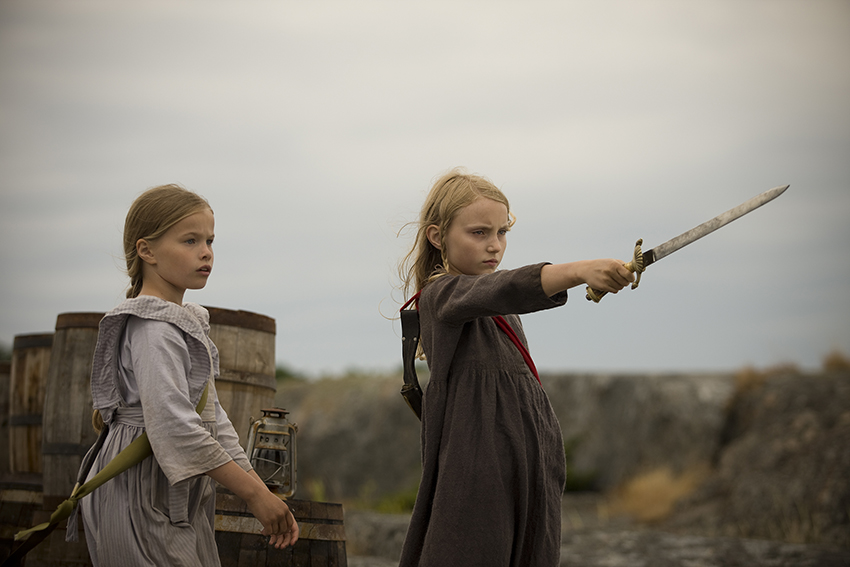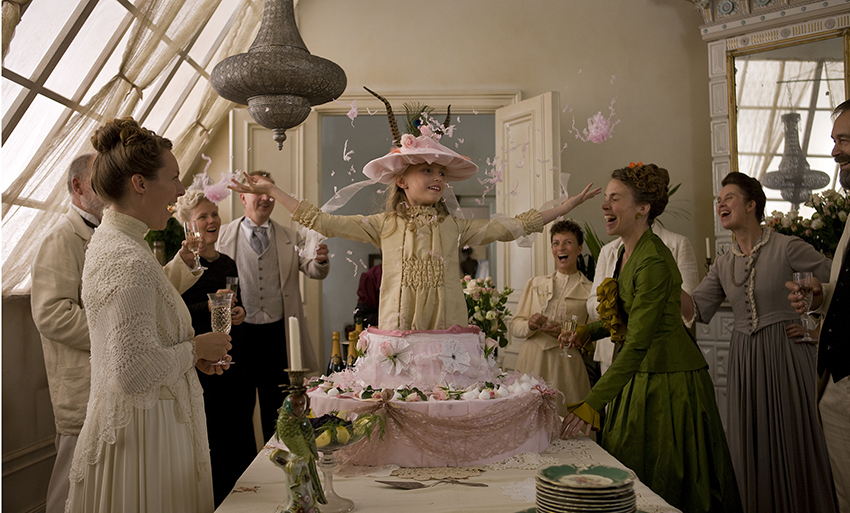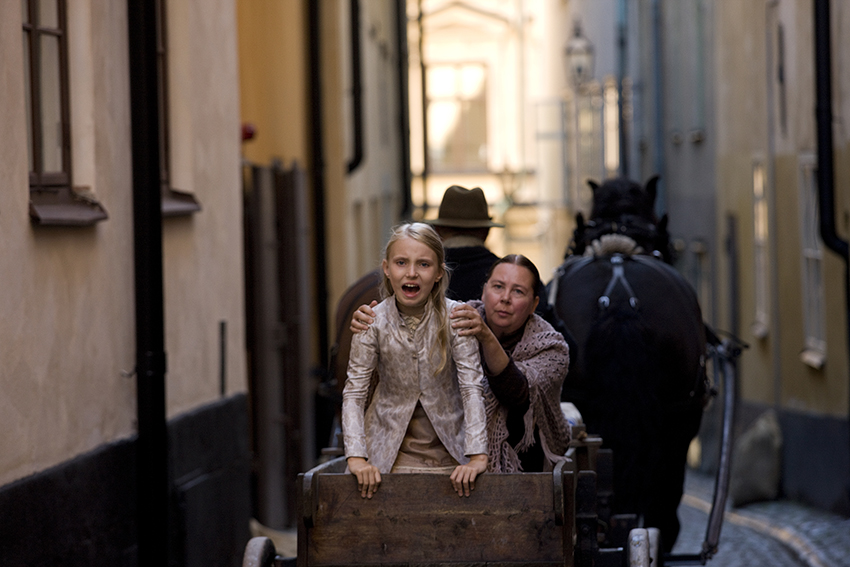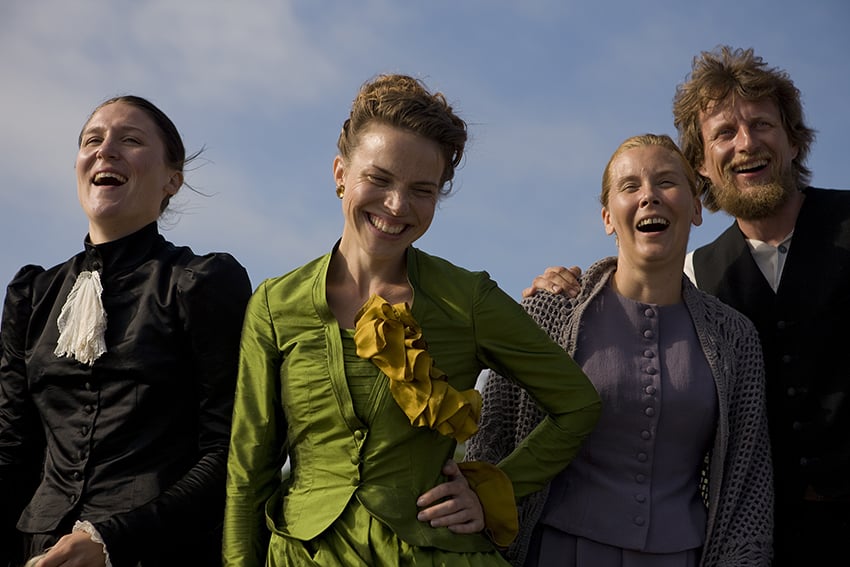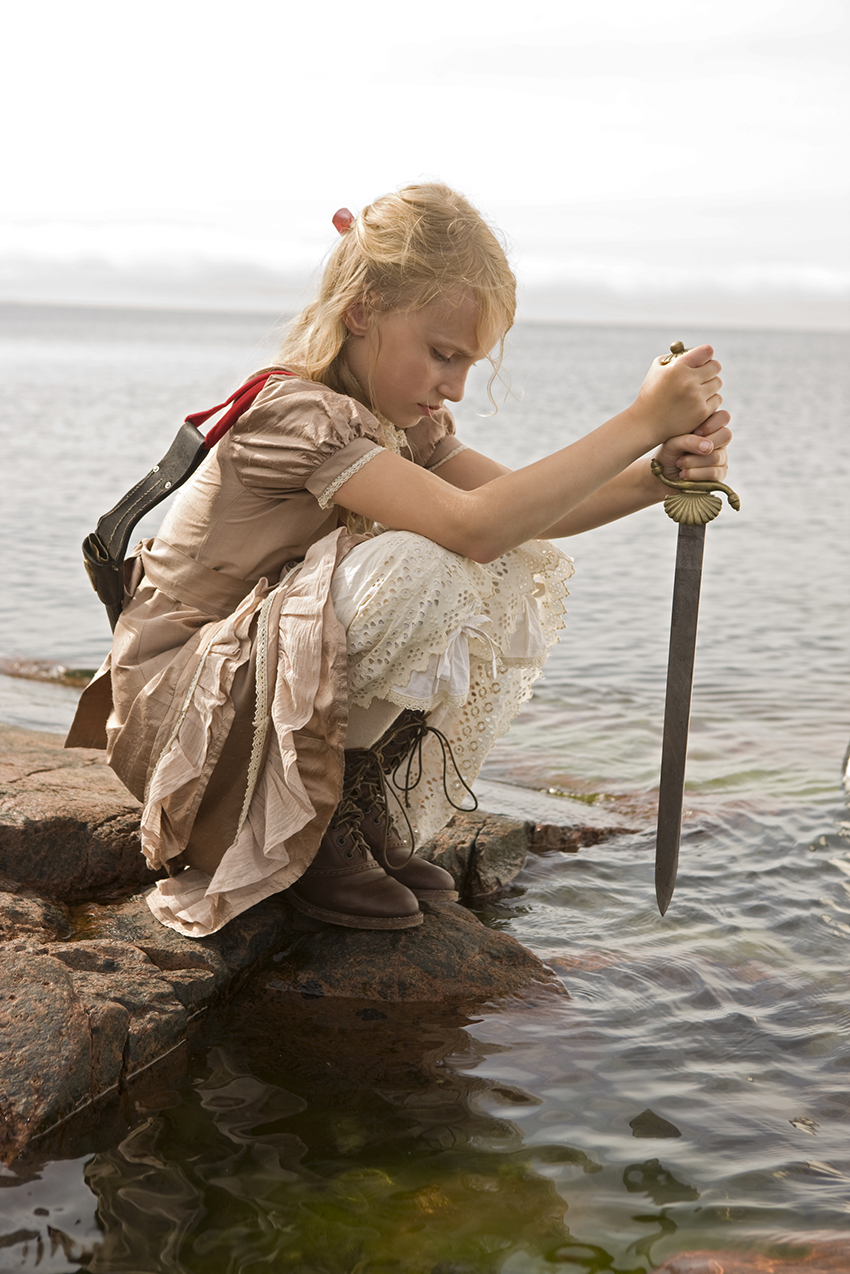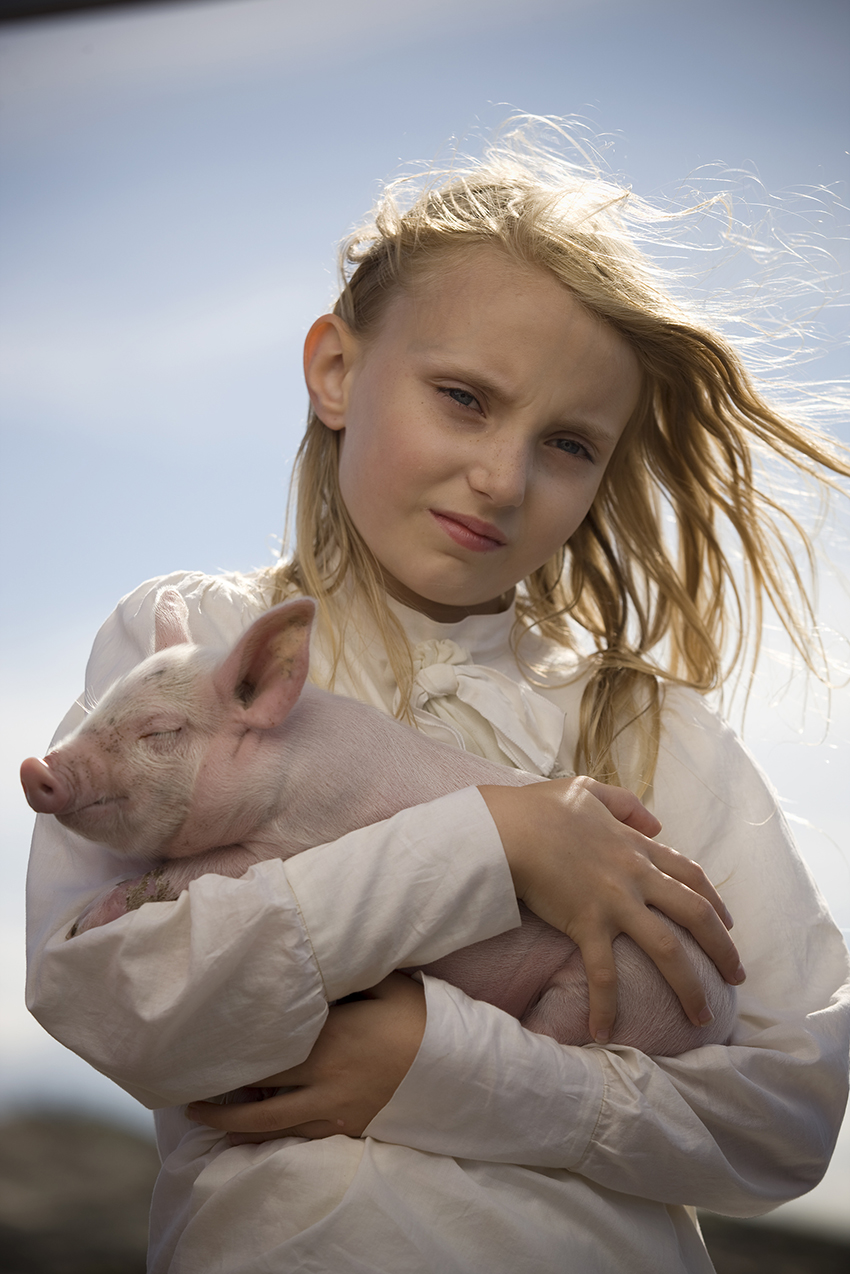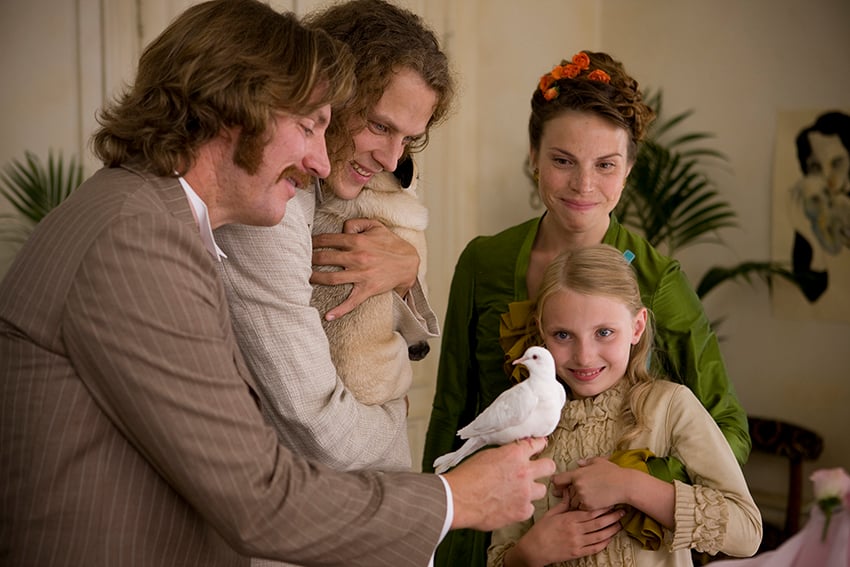Iris
Synopsis: Stockholm,1890. Iris, funny and wise beyond her 8 years, is surrounded by decadent family friends with a love for the finer life. She anxiously prepares for an exciting trip to Paris for her artist mother’s exhibition. What she doesn’t know is that she isn’t going – her mother has important people to be with and she is not one of them. When her caretaker is unable to watch her, she finds herself shipped to The Aland Islands; where she learns to put the sophistication of urban life aside and conform to the barren archipelago life of those so familiar to her; unveiling the truth about her and her secreted past.
Genre
Rated
Language
Run Time
Subtitles
Starring
Magnus Krepper (Bruno)
Tobias Zilliacus (Elias)
Robert Enckell (Postmästaren / Döden)
Erik Lönngren (Albert)
Marika Parkkomäki (Jolanda)
Oskar Pöysti (Samuel)
Maria Salomaa (Ester)
Emmi Pesonen (Helena)
Pia Runnakko (Selma)
David Sigfridsson (Marius)
Stella Hägerstrand (Döda babyn)
Richard Hägerstrand (Erik)
Eleonora Andersson (Sofia)
Directed by
Produced by
Prod. Company
Director's Statement
The first time I held the script to “Iris” in my hands I could not seem to let it go. I read it at a stretch and devoured the text in excitement to find out what happens next. There is an excitement in the script; it moves forward, it is unpredictable, filled with surprises and enticement, and at the same time it fills all the desires one might have of a clear structure and an inner logic.
“Iris” is a great big story; we meet a bulky cast depicted as pleasure-filled people and also two glaringly different surroundings crashing into each other – the fashionable artists’ circles in Stockholm versus the barren archipelago of The Åland Islands.
The film is set during an exciting transition period: The end of the nineteenth century with the birth of Modernism, thoughts of emancipating women, children’s rights, the urban ideal, nature romanticism
and symbolism. These are tendencies, which billow through the script like an undercurrent.
When I read the script for the second time, my attention was drawn to the characters. The children’s way of trying to find their place in life; their loyalty and antipathy, but also the grown-ups, who are described in a lush and tactful way, which is unusual in a children’s film. The lushness appears in the straightness of the characters and the rewarding roles.
The tactfulness is shown in the sense that the anguish and concerns of the adults are allowed to influence the story.
In films made for children the adults are often there for the children, as antithesis or sounding boards if you will, but not in this case.
The adults are also allowed to be human in “Iris”. They are not depicted from above or from below, but move in the same emotional world as the children. What is common in all age-groups in the film is that they are persons filled with emotions and passion. They are living, imperfect people who want and who attempt so many things. At the same time, the story sides with the child all the way through; identifying itself with the vulnerable one.
The third time I read the script, I could see the girl Iris with my mind’s eye. She was this open wound, this pale ghost. Much like her mother, Ester, she longs for freedom and unruliness in her wildness. Deceived, not twice but three times: No trip to Paris, then carted off to a distant, unknown and different island, where she finds out that her past, as she knows it, is a lie.
I feel a great tenderness and closeness to Iris. As a daughter and a mother, the story of the deceived child grabs a hold of me, and I am struck by the fact that I have rarely read a script where the disappointment and abandonment the child experiences is vented as clearly as in this case. Children’s fury is considered taboo, especially when it is directed at the ones who are the
closest. This is why it is so important to portray it.
At the same time ”Iris” is a story of survival with the heroine being defiant and soiled, one thrown between poles of loneliness-fellowship, freedom-adaptability, the only child-being part of a flock.
The inherent wildness is something that I particularly wish to depict in the film. As a story of development, “Iris” is twisted and turned around. This miniature grown-up of a girl – sophisticated, urbane, learns how to be a child, get dirty and play, this without “Iris” having to give up who she has been; to deny her former identity. Again, I feel that this is an unusual children’s film script.
“Iris” is a simple and natural way of saying that life does not have to be either-or, it can be both. Iris enters life strengthened and expanded. She has made it, gained her independence, gained relatives and siblings, roots and a background, and through all this she and her mother Ester find a love-channel to each other.
On a whole, the script holds an open and liberal outlook on life, and this atmosphere of tolerance makes “Iris” a bright film-story with a positive outlook on life, even though it deals with hard and painful subjects. The humor of the script, drastic and rich, should not be forgotten either.
Visually, “Iris” is a dream to a film maker, due to the fact that references to the Scandinavian golden-age are present. My sources of inspiration are the masters of Nordic light, such as: Edelfelt, Zorn, Berg, Kröyer, Ancher & Ancher and others. As an antithesis, I have the symbolism in the dream-sequences where I am inspired by the elegiac silent films by Murnau and not to mention the obvious Böcklin-allusions.
Most of “Iris”, takes place on the beautiful, distinctive and in film-context, strangely unexploited Åland Islands. As a summer-citizen of Åland going back more than twenty years, I know the province well, and depicting it more closely has for a long time been a dream of mine.
-Ulrika Bengts, Director
Director's Bio
Ulrika Bengts was born small Swedish-speaking village on the west coast of Finland in 1962. She studied political science at the University in Turku before she moved to Stockholm. She graduated as a Film Director from Dramatiska Institutet in Stockholm (nowadays Stockholm Academy of Dramatic Arts) in 1989. After her graduation she returned to Finland.
She lives in Helsinki where she is working as a director, scriptwriter and film schoolteacher. She has directed some thirty films: among them two features and tens of documentaries, short films and TV-series, as well as theatre productions and radio dramas. Her previous work includes the award-winning films and TV-series Fling (TV-series, 2004), Now You’re Hamlet (documentary, 2002) and Highway Eight (documentary, 1992). She is formerly known for, Goodbye Gibraltar (1993), Diktonius – Ord lever! (documentary 1995), With Borrowed Shoes Through the Sahara (documentary, 1995), Coober Ped – Den vite mannens hål i jorden (documentary, 1997), Kiasma – kohtaamisia (Documetary short, 1999), The Bridge to Lelle (short, 1999), Kometen (short, 2004), Avsked (TV-series,2010) and Kaskö documentary, 2011). The Disciple is her second feature film, which became Finaland’s submission for 2013 Academy Awards.
Nominations
Jussi Awards - Finland - 2012
Best Costume Design







